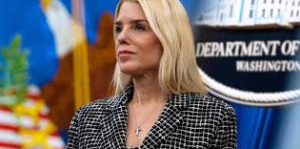Therese Coffey’s new water strategy faces criticism from campaigners and opposition MPs
Therese Coffey, the Environment Secretary, has come under intense scrutiny following the release of her government’s new water plan, with critics accusing her of having little control over her department. Launched at the London Wetlands Centre on the River Thames, Coffey’s “Plan for Water” has been dismissed by many campaigners, who argue it lacks urgency and ambition in tackling the growing issue of water pollution.
During the launch, Coffey acknowledged that sewage pollution cannot be stopped overnight and stated that any claims to the contrary would be “definitively dishonest”. This admission followed newly revealed figures showing over 300,000 sewage spills across the UK in 2022, sparking calls from opposition MPs for her resignation.
The plan outlines several key measures, including accelerating investments in water company infrastructure, tackling pollution from agricultural slurry, restricting the use of harmful chemicals in products, and implementing unlimited penalties for polluting companies. While some have praised the “holistic” approach, others feel it lacks the long-term vision needed to successfully restore and protect natural waterways.
Campaigner Feargal Sharkey criticised the plan as a “desperate” move from a government minister struggling to manage her department, suggesting that it merely represents a disorganised reaction to an industry that is not being held accountable for its actions.
Matt Browne, head of policy at Wildlife and Countryside Link, welcomed individual aspects of the plan, such as tackling plastic waste and improving chemical regulations. However, he expressed concerns about the absence of a long-term strategy for improving the health of the UK’s rivers and seas. Browne stressed that a truly comprehensive plan was needed, one that would address the root causes of pollution, such as the excessive use of chemicals and poor infrastructure.
The plan also includes measures to restrict per- and polyfluoroalkyl substances (PFAS), known as “forever chemicals”, but Coffey has not included a statutory limit for their presence in drinking water, despite recommendations from health authorities. This has raised further concerns about the government’s commitment to ensuring safe water quality.
Craig Bennett, chief executive of The Wildlife Trusts, stated that while a holistic approach was necessary, the success of the plan would ultimately depend on how the various initiatives are implemented and whether it genuinely reduces pollution from both agriculture and the water industry.
Kitty Thompson, from the Conservative Environment Network, acknowledged the plan’s potential to improve water quality, but noted that there is still much to be done, particularly in addressing surface water runoff and reducing nutrient pollution from housing developments.








